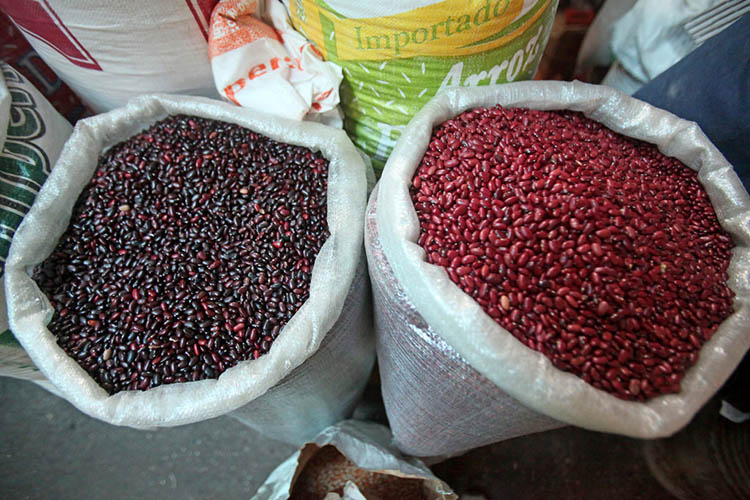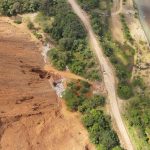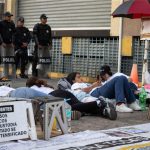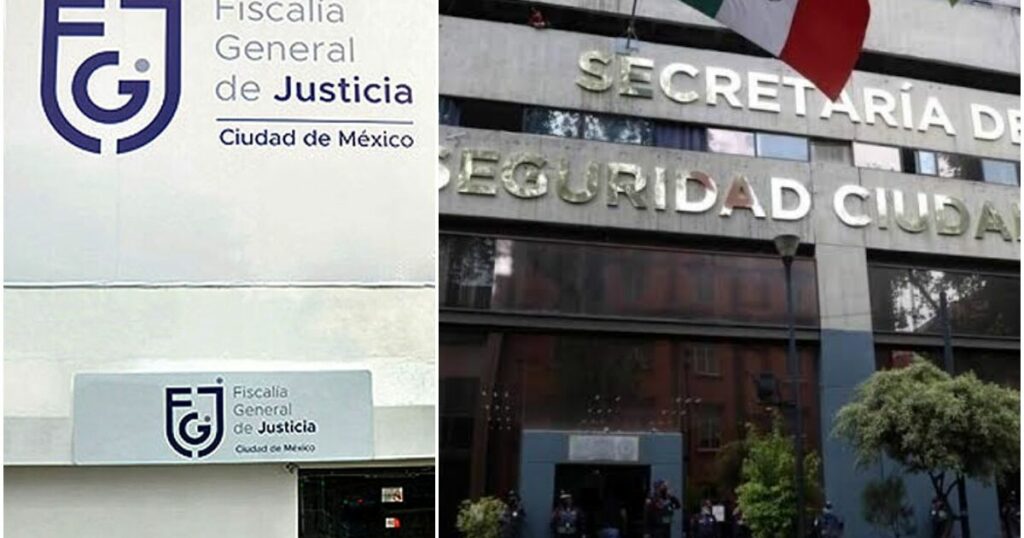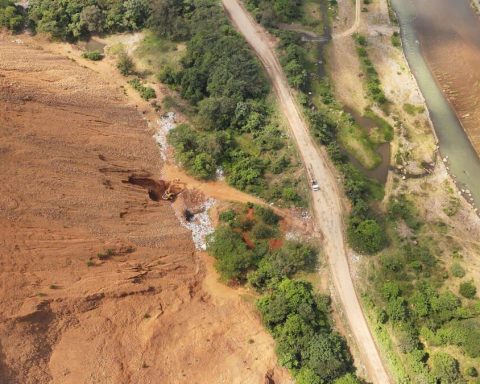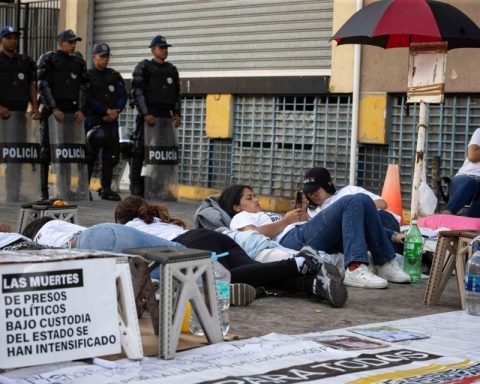Beyond the speeches the economic model that Daniel Ortega and Rosario Murillo imposed in Nicaragua, is “a truly IMF, neoliberal economy,” in which economic growth translates into higher unemployment, low wages, hunger, poverty and high migration, explained economist Enrique Sáenz on the program Tonightwhich is broadcast online to circumvent the regime’s television censorship.
Saenz, exiled in Costa Ricais one of more than 200,000 Nicaraguans who have sought personal security—or employment—both in this country as in the United States or Spain, in addition to several destinations in Central America. “This mass exodus is evidence that the situation is unsustainable for the vast majority of Nicaraguans, and that is why they are leaving,” he said.
Citing official data from the governmental Nicaraguan Institute of Information for Development (Inide), the expert recalled that the main component (that is, food) of the basic basket, that surpassed the barrier of 18,000 córdobas in Augustshowed an increase of 24% in the last twelve months, while the average salary of salaried workers in the formal economy rose by 1%.
“That percentage is so amazing that I had to go back to review the figures and do the calculation, because it is truly shocking that while the cost of food grew 24%, data from the Central Bank of Nicaragua (BCN), indicate that the wages of workers… better positioned, only increased by 1%. Behind these figures there are beans that do not reach the people, tortillas that do not reach the people, cheese that does not reach the people. Namely: behind this number, what there is is hunger”, he sentenced.
A simple analysis of these data shows that families that have not had an increase in their income equivalent to 24% in the last twelve months are eating fewer beans, less cheese, less tortillas, or eating stir fry. The vast majority of Nicaraguans are in the informal economy and consequently do not even have a fixed income, the expert recalled.
Sáenz mentioned these three foods in particular, not only because they are at the base of the average Nicaraguan diet, but also because “according to the Government itself, beans have increased by more than 40%. We are no longer talking about 24% of the food. We are talking about the fact that beans and tortillas have increased 43%, and cheese, according to official figures, 32%”.
“It is a dream to eat meat for the vast majority of Nicaraguan families,” he said, recalling that these are not imported products, but corn, beans and cheese that are produced in the country. “The main domestic consumption products are the ones that have increased the most,” she insisted.
The economy grows, but not employment?
Along with the increase in the prices of the basic basket, especially food, the economist also noted how the salary of workers in the formal sector has deteriorated, that is, those who are affiliated with Social Security and have a fixed salary — who are a minority of around 30%—as opposed to those who work for small businesses that operate on the fringes of the economy.
Although the BCN statistics insist that the gross domestic product (GDP) grew 10.3% in 2021and 5% in the first half of 2022, Sáenz noted that “normally, when there is growth in a normal economy, there is a demand for employment and consequently, the number of workers increases”, with which wages also increase.
When comparing the purchasing power of workers’ wages “in the last year of the ‘neoliberal’ government of President Enrique Bolaños, with the purchasing power of wages in the last month reported by the Central Bank,” he found that, in 2006 (the last year of the Bolaños Administration), the workers “had a 22% higher purchasing power than wage earners in the ‘Christian, socialist and solidarity’ economy”.
This means that, if it is established that in 2006 an average salary granted a purchasing power of 10,000, the average salaries, which have grown over the years, now grant only a purchasing power of 7,800, which is “the result of this model that rests on the cheapening of labor and the concentration of income”, and has to do with cheese, beans, corn, and the increasingly expensive kerosenewhich is used to light a fire for cooking, in the houses of the poorest citizens of the country.
“That is one more expression of the insensitivity of those who manage the economy of the Ortega regime,” he said.
Along with this lower purchasing power, he also stressed that GDP growth does not mean an improvement in formal employment, a detail that has also been recognized by the president of the BCN’s board of directors, Ovidio Reyes.
Citing data from the Central Bank, Sáenz said that in the last four months, the INSS has lost 8,000 affiliates (4,500 between June and July), which means that the companies that gave them work closed or reduced their activities. “How do you explain an economic growth that does not generate employment, makes the living conditions of the population more expensive”, and maintains wages in a downward trend of their purchasing power?, he questioned.
The ‘hoax’ of fuel prices
Returning to the discursive fallacy of the regime, Sáenz warned that “under the popular anti-imperialist discourse, a brutal model is hidden”, which prioritizes meeting a certain goal of international reserves, strictly sustaining the stability of Córdoba, and controlling the fiscal deficit, bragging about that, “that has nothing to do with the reality of companies and families, because achieving these macroeconomic results translates into suffering for families, for millions of Nicaraguans, and anxiety for companies.”
The expert said that families are practically without a way out “in the face of this economic model imposed by the dictatorship, because deep down, what underlies as a cause is the economic model that concentrates income on the one hand, and on the other hand, dispossesses of their income to the vast majority of Nicaraguans, even if you don’t see it.”
He explained that this ‘dispossession’ occurs —among others— with fuel prices, or electricity. “It is an economy that rests on a few items, and the profits, the profits from those items, are concentrated in a minority and consequently, they do not filter the group of companies or the group of families.”
Although the official propaganda praises the decision to ‘freeze’ the price of fuel, Sáenz believes that this is “a hoax“, because fuel prices frozenbut they did not freeze the profits of those who are in the fuel business.
His criterion is that when international oil prices decrease, there should be a relief in internal prices, “but they keep them frozen”, which “has no logic”, for which he urged to convert each international price decrease into a relief for the companies -which are the ones that generate employment- for families, and for the country’s economy.
Instead, companies must endure government persecution which is supported by the General Directorate of Revenue, the General Directorate of Customs Services or the mayor’s offices, with which the resources of the business sector “that could be used to generate more employment, to maintain economic activity, to modernize the plants within… this environment of uncertainty where the lack of freedoms, of rights, is a limitation for investors, they pass into the power of the State so that they can show these indicators”.
The result is a massive migration estimated at some 300,000 people (including thousands of regime sympathizers) and which, if it continues, could lead to the expulsion of 9% of the population by the end of the year. This is “one of the greatest tragedies in the history of Nicaragua, because there is no war, nor is there a natural catastrophe,” he pointed out.
While true, that will lead to remittances approach 3 billion dollars in this year, a lot more than budgeted tax revenue for the same periodSáenz invites you to read these statistics from the perspective of suffering, the separation of families, the people who died trying to reach the United Statesand the loss of hope among young people, who see how their nation cannot offer them opportunities to build a better future.
